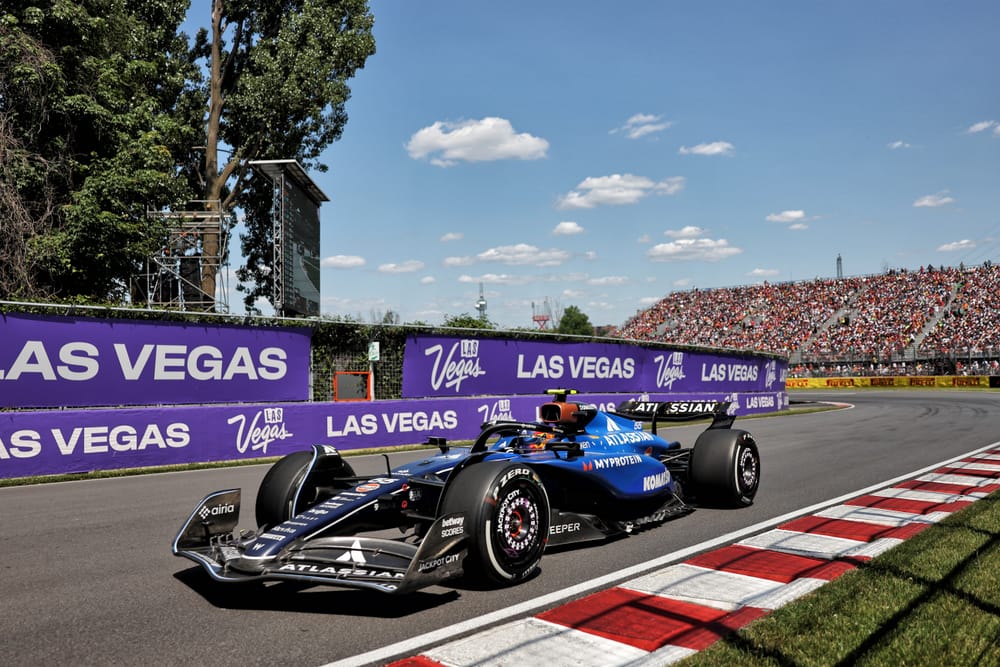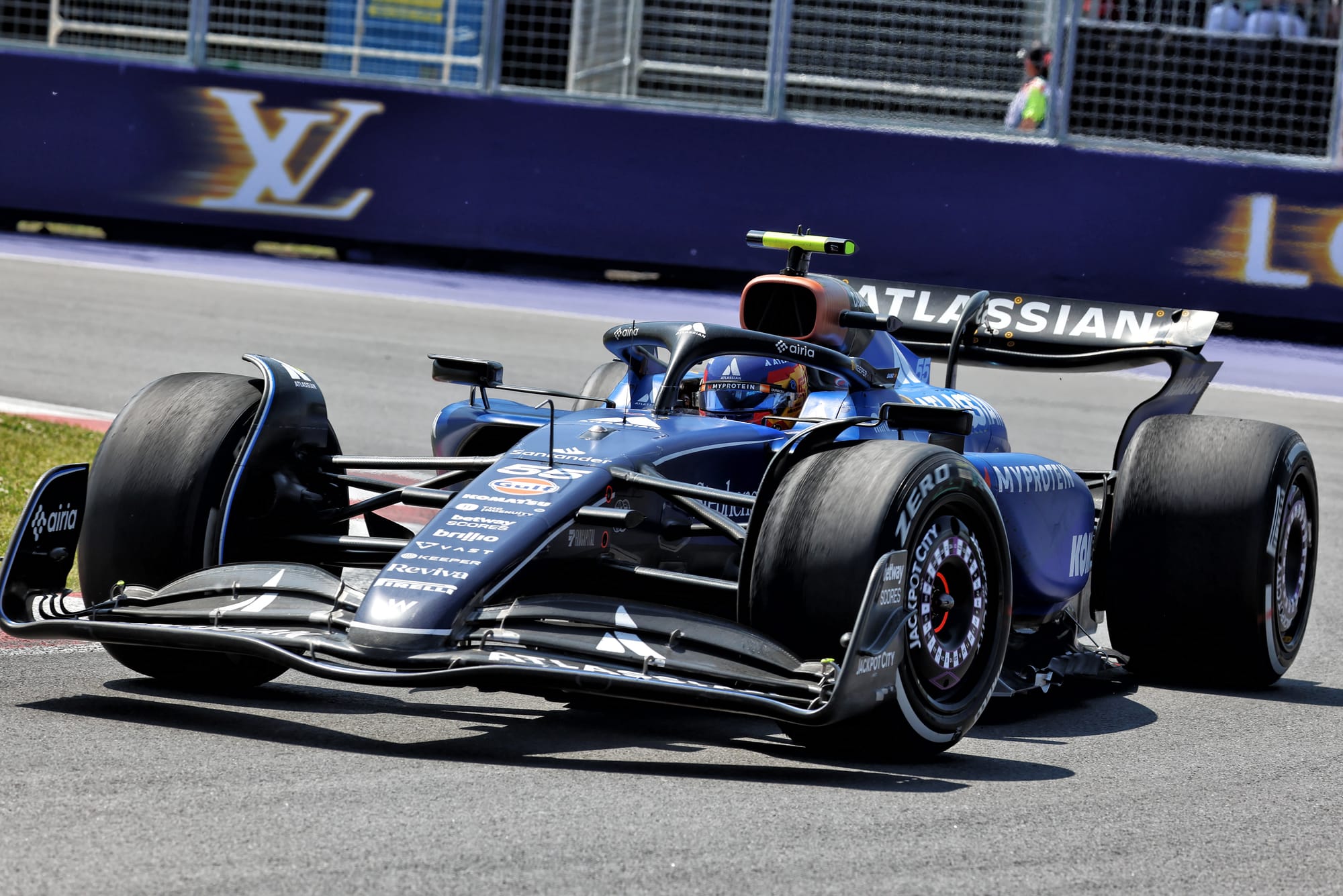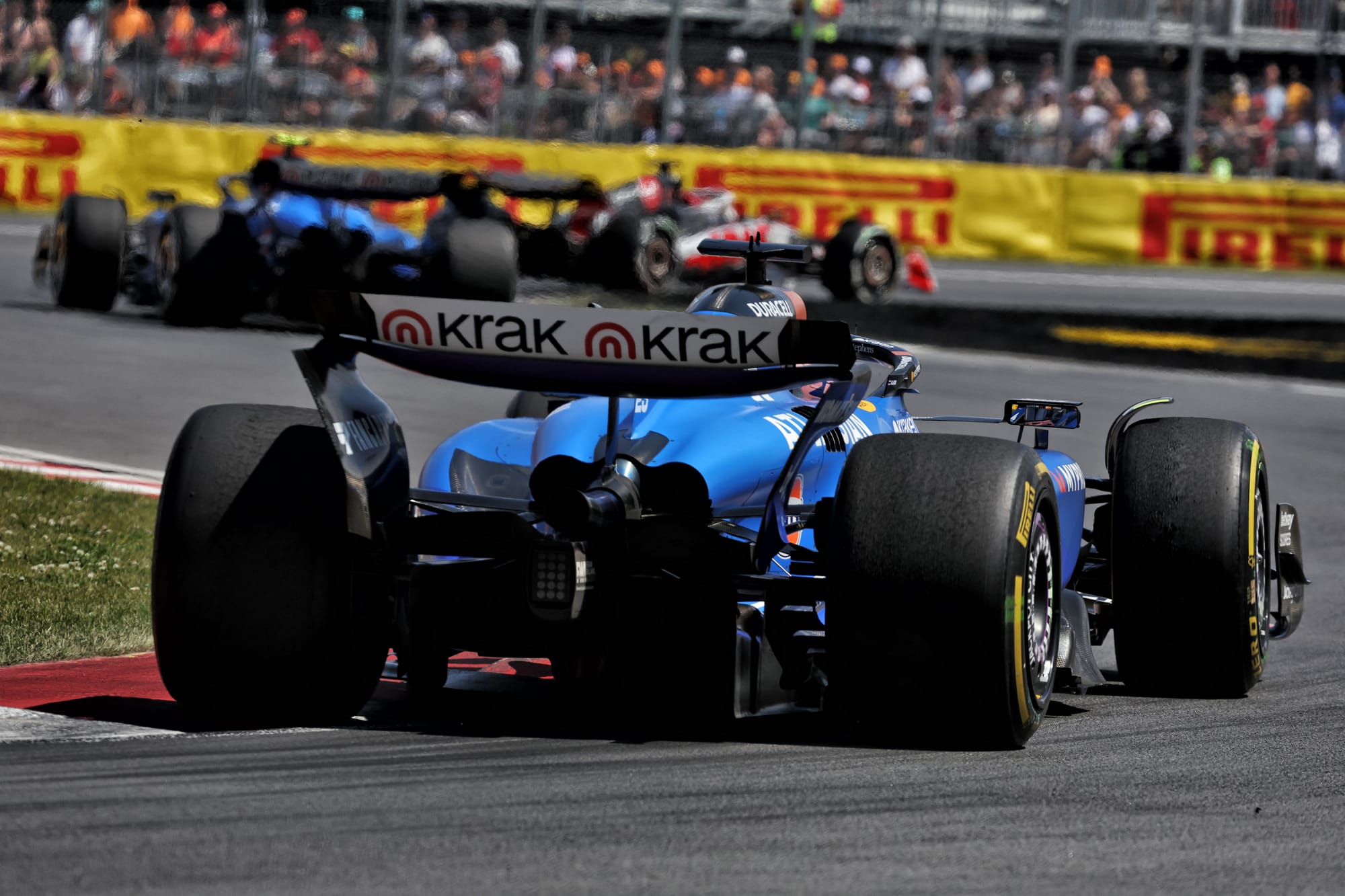Williams is readying fixes to mitigate recent cooling headaches in Formula 1 races but concedes its problem runs deeper than simply needing to make minor bodywork tweaks.
Alex Albon was forced to retire from the Canadian Grand Prix earlier this month with an engine cooling issue, while team-mate Carlos Sainz was also unable to push as hard as he wanted because his brakes were overheating.
It came on a race weekend where Williams's bodywork appeared to be closed off in a much more aggressive manner than other teams, as the squad sought to maximise aerodynamic performance.
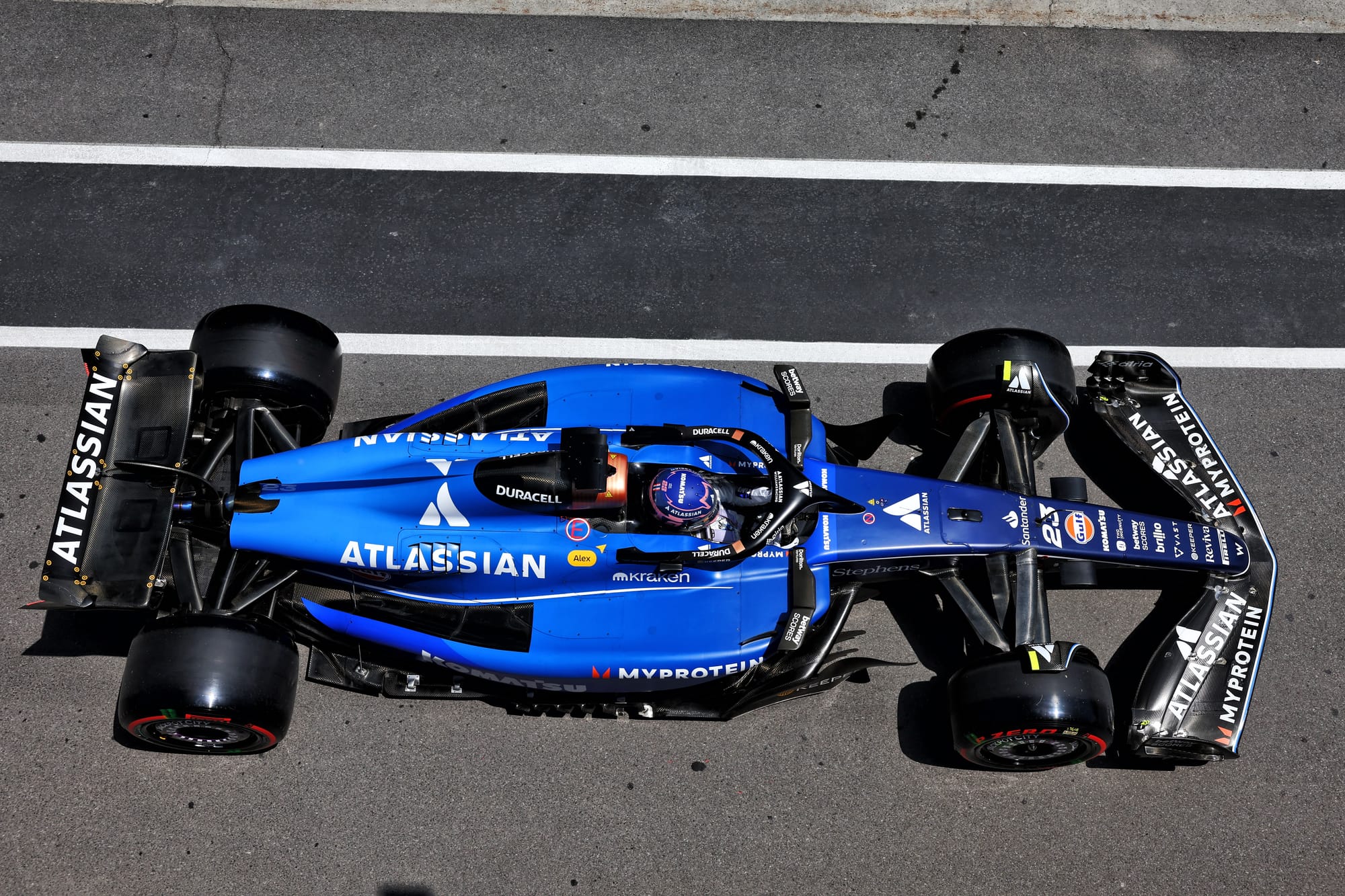
Cooling issues have been a factor at other races this season - in the Miami GP in May it contributed to some team orders intervention - and Albon said after Montreal that he felt it was something Williams needed to improve.
"We do think there was a six-, seven-car train and there's not much wind, fresh air, getting into the car," he said.
"We need to look at it because it's not just going to be this race that happens. We had a couple of races where we got a little bit close but it bit us."
Team principal James Vowles concurred that cooling is something that Williams is not on top of as much as it would like, and said recent experiences have exposed some weakness that still exist in its infrastructure.
"This is a problem that we've taken a number of medial steps in order to counter this year," Vowles, who recently agreed a long-term Williams contract extension, told The Race. "So have we got it right? No.
"And I always go back to what you need is the right level of simulation to actually drive where you should be.
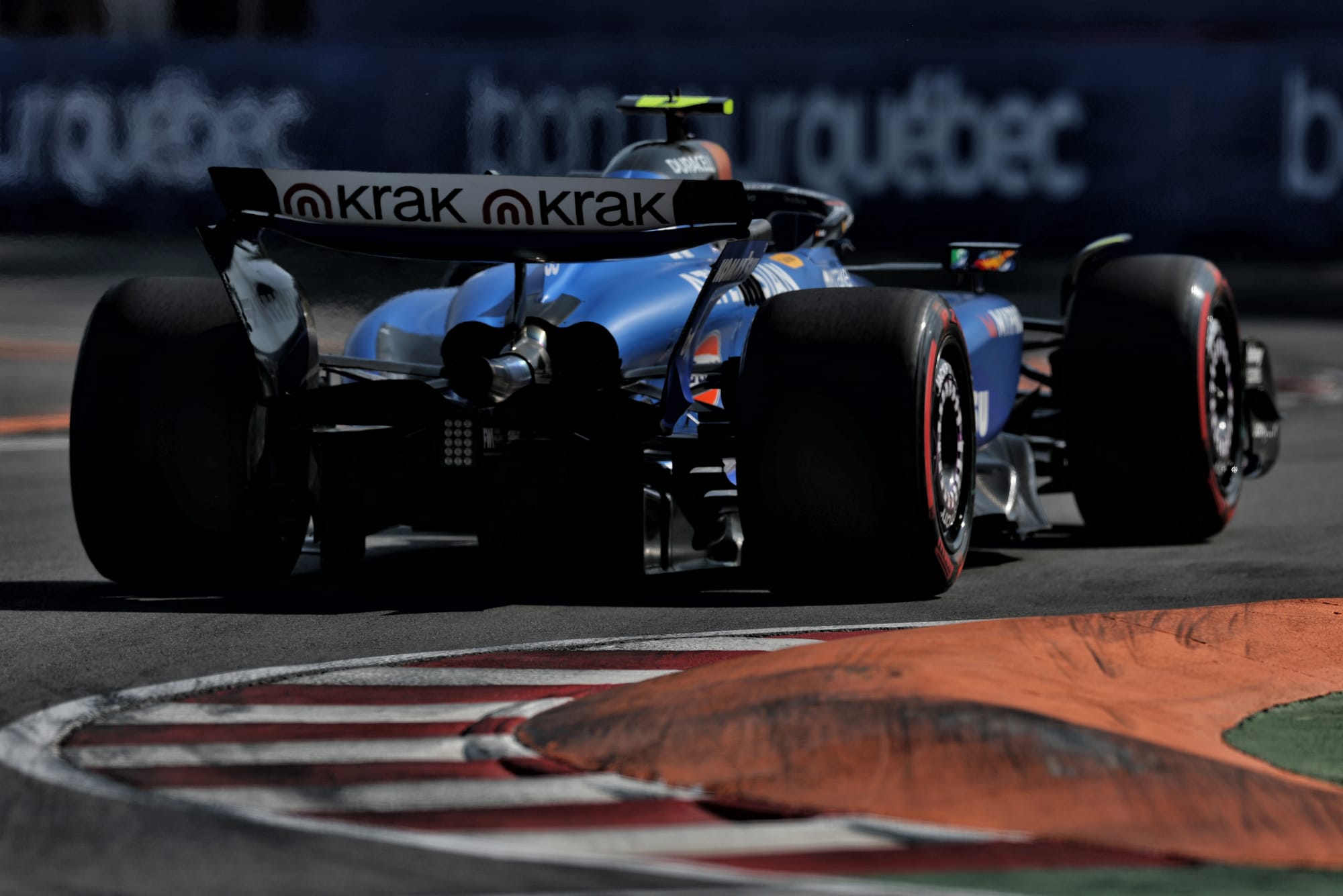
"What we're doing at the moment is discovering these issues either in VTT [virtual test track] testing or in real track testing, and that's not the way to do it. But we don't simply have the infrastructure behind us at the level it needs to be.
"At the moment, we're using human beings to try to estimate where we should be, rather than real tools in order to determine where we should be, and that is always going to lead you to poor results.
"We have some fixes on the way in the next few races, but it's more learning on track and then responding to that learning, and so therefore we are behind the curve."
Vowles did feel, however, that it would be wrong to suggest Williams got its cooling configuration totally wrong in Canada with Albon, because Sainz did not encounter similar engine overheating problems with an identical set-up.
"Carlos had zero problems with the same cooling outlets," he said. "So in other words, aerodynamically, the cooling is fine.
"Aero [department] have done a really good job of optimising down where we should be. He had brake temperature issues, which a lot of teams did. Montreal is one of the worst of the year, but the actual engine cooling was fine."
What else needs to evolve
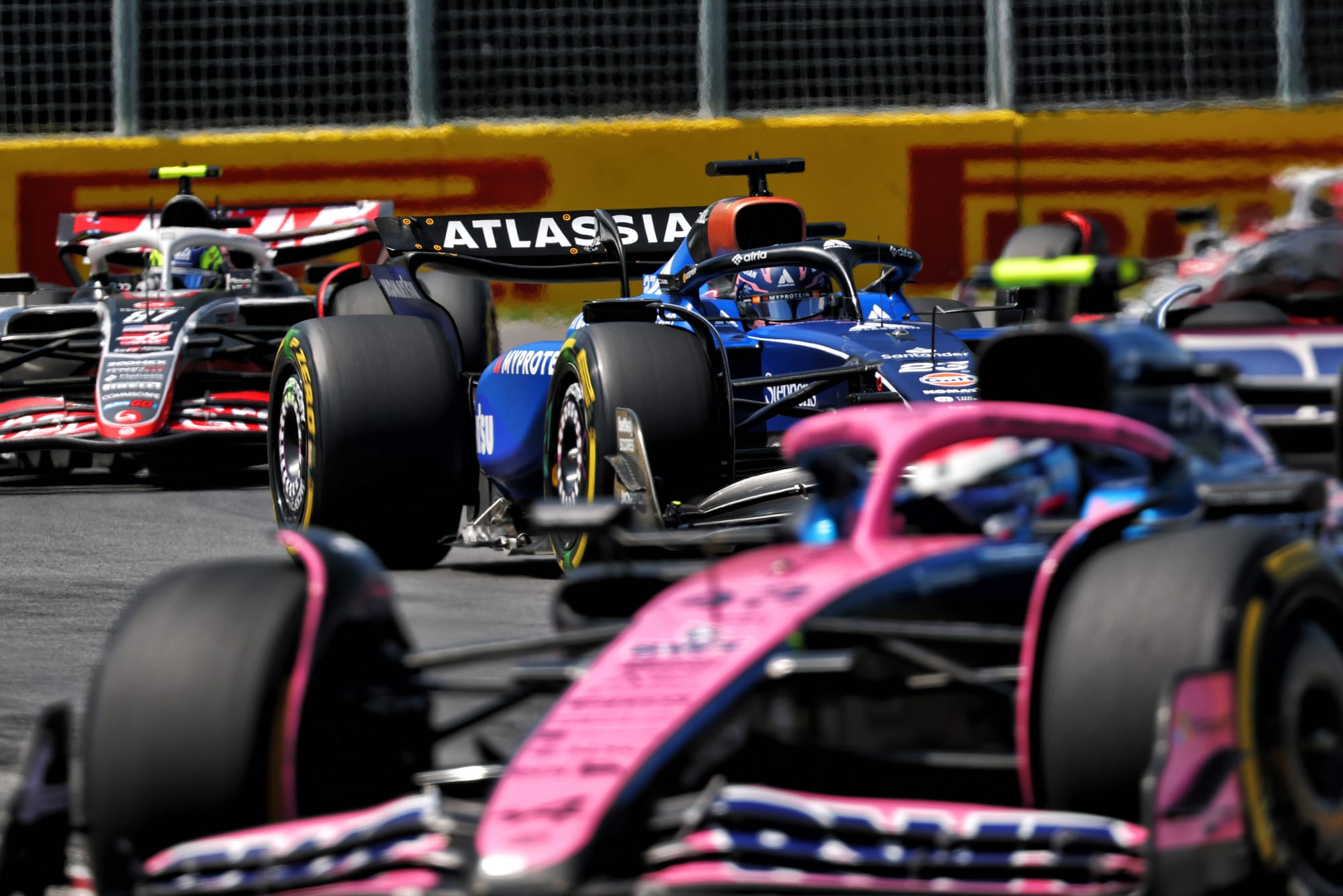
Cooling issues are just one of many elements that Vowles said Williams was moving to address, accepting that it takes time to get a team into a position to be winning races.
The Canadian GP also exposed questions about its strategy execution, amid some in-race frustration from Albon over the team radio.
Vowles said there is no way a team can move from being a midfield contender to fighting for titles overnight.
"I don't think any part of our organisation is championship-level, any part of it," he said. "And that includes the operations and what we're doing. There is a 'however' to this.
"What we have created is a culture within this team where there's an instant, and it's really quite stark and noticeable, recognition of someone's hand going up and saying: 'This is what I didn't get right. This is what we are fixing for next week. And this is what we are doing going forward with it as well'.
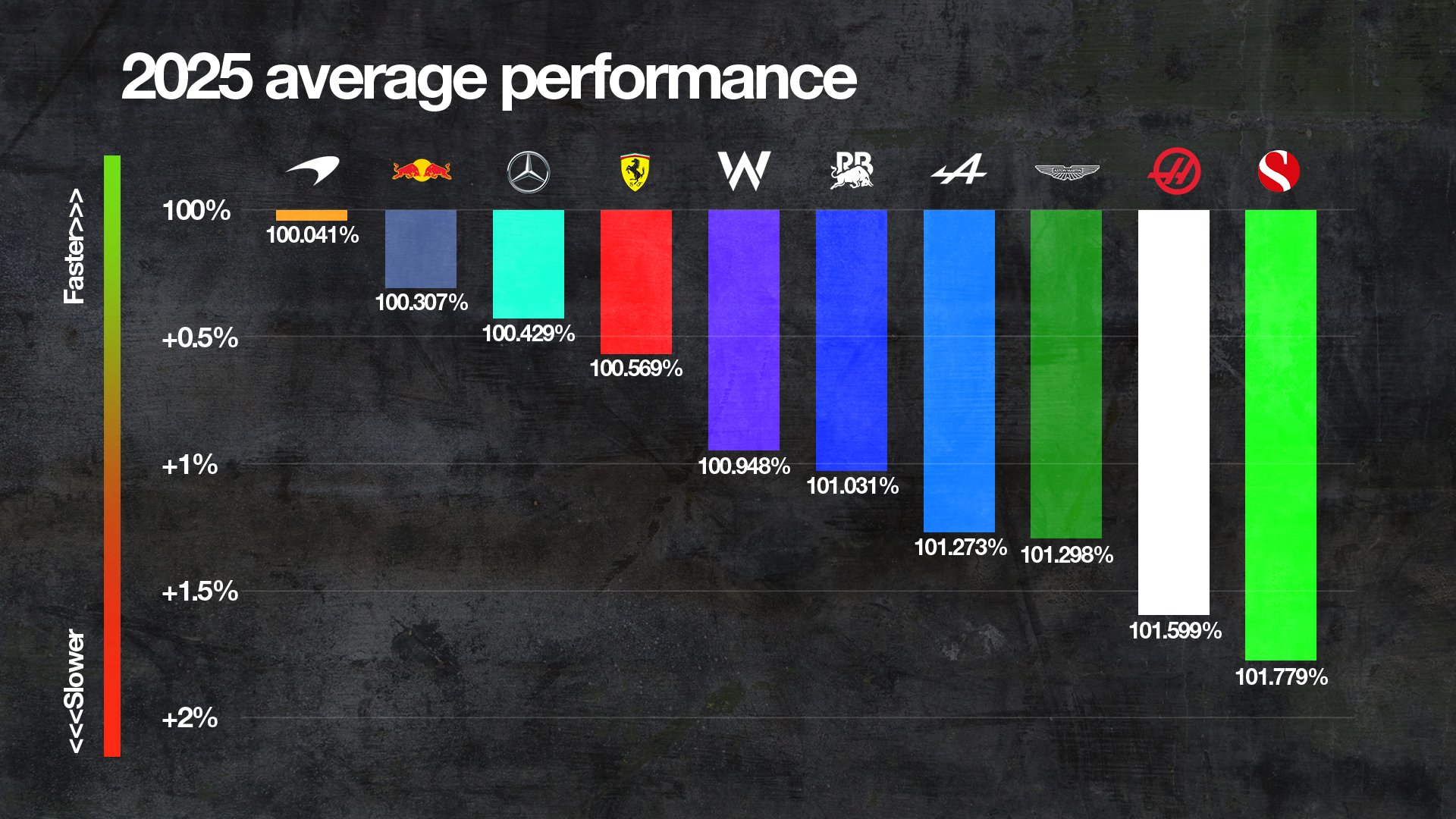
"There aren't individuals within the team stating we are at the right level. It is quite the opposite. We are stating this is the journey. Can you give us just these races? And this is what we're going to change race by race, in order to find improvement on where we are.
"So that goes from everything: from pitstops, to strategy, to communication with the drivers, to communication with the wider field, through to parts coming to the track. It's everything that you can think of.
"And that's what I am looking for, because that kind of culture of effectively continuing to chase excellence is what you're after."


